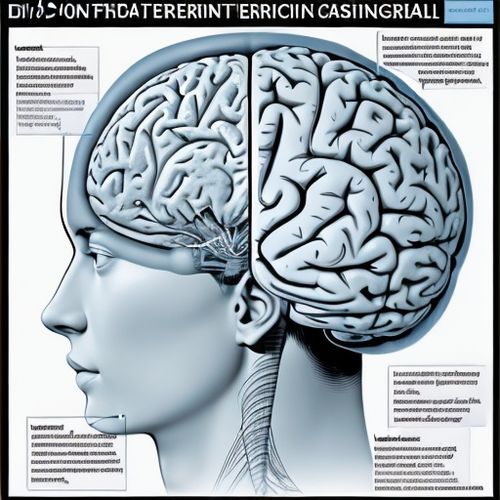In the hustle and bustle of modern life, we often overlook a seemingly minor detail that can have profound effects on our health: posture. Poor posture is more than just a cosmetic issue; it can lead to a cascade of health problems that affect our physical well-being, mental health, and overall quality of life. From chronic pain to decreased lung capacity, the impact of poor posture is far-reaching and often underestimated. This article delves into the dangers of poor posture, its causes, and how to address it to improve your health.
The Hidden Dangers of Poor Posture
Musculoskeletal Issues
Poor posture is a significant contributor to musculoskeletal problems. When we slouch or hunch over, our spine deviates from its natural alignment, placing undue stress on the vertebrae, discs, and surrounding muscles. Over time, this can lead to chronic back pain, neck pain, and even headaches. The muscles in the back and neck become overworked and strained, while the muscles in the front of the body, such as the chest and hip flexors, become tight and shortened.
Moreover, poor posture can exacerbate existing conditions like arthritis and spinal degeneration. The misalignment of the spine can lead to uneven wear on the joints, accelerating the degenerative process and causing increased pain and stiffness.
Respiratory and Digestive Problems
The impact of poor posture extends beyond the musculoskeletal system. When we sit or stand with poor posture, our ribcage compresses, reducing the space available for the lungs to expand. This can lead to decreased lung capacity and shallow breathing, which in turn reduces the amount of oxygen that reaches the bloodstream. Chronic shallow breathing can contribute to fatigue, shortness of breath, and even anxiety.
Similarly, poor posture can affect the digestive system. Slouching or hunching over can compress the abdominal organs, interfering with normal digestive processes. This can lead to issues such as acid reflux, constipation, and bloating. Over time, these problems can contribute to chronic gastrointestinal disorders.
Mental Health Implications
The physical effects of poor posture are only part of the story. Research has shown that posture can also impact our mental health. Slouching and hunching over can lead to feelings of fatigue, low mood, and even depression. This is because poor posture can affect the release of neurotransmitters in the brain, such as serotonin and dopamine, which are crucial for regulating mood.
Additionally, poor posture can contribute to increased stress levels. When our bodies are in a state of misalignment, our muscles are constantly working to maintain balance, leading to physical tension and stress. This physical stress can translate into emotional stress, creating a vicious cycle that further exacerbates poor posture.
The Causes of Poor Posture
Sedentary Lifestyle
One of the primary causes of poor posture is a sedentary lifestyle. Prolonged sitting, especially in front of a computer or television, encourages slouching and hunching. The muscles in the back and core become weak from disuse, while the muscles in the front of the body become tight and shortened. This imbalance leads to poor posture and a host of related health problems.
Poor Ergonomics
Another significant factor contributing to poor posture is poor ergonomics. Workstations that are not set up correctly can force individuals into awkward positions, leading to muscle strain and misalignment. For example, a computer monitor that is too low can cause neck strain, while a chair that does not provide adequate lumbar support can lead to lower back pain.
Lack of Awareness
Many people are simply unaware of their poor posture and the impact it can have on their health. Without proper education and awareness, individuals may continue to engage in harmful postural habits without realizing the long-term consequences.
Addressing Poor Posture: Strategies for Improvement
Ergonomic Adjustments
One of the most effective ways to improve posture is to make ergonomic adjustments to your workspace. Ensure that your chair provides adequate lumbar support and that your feet are flat on the floor. Your computer monitor should be at eye level to prevent neck strain. Additionally, consider using a standing desk to reduce the amount of time spent sitting.
Strengthening and Stretching Exercises
Regular exercise is crucial for improving posture. Strengthening exercises, particularly for the core and back muscles, can help support the spine and maintain proper alignment. Stretching exercises, especially for the chest, shoulders, and hip flexors, can help alleviate muscle tightness and improve flexibility.
Posture Awareness and Training
Increasing awareness of your posture is essential for making lasting changes. Consider working with a physical therapist or a certified personal trainer who specializes in posture correction. They can provide personalized guidance and training to help you develop better postural habits.
Regular Breaks and Movement
If you have a sedentary job, it is important to take regular breaks to move and stretch. Set reminders to stand up, walk around, and perform simple stretches every 30 to 60 minutes. This can help reduce muscle strain and improve circulation.
Poor posture is a silent saboteur that can quietly damage your health in numerous ways. From musculoskeletal problems to respiratory and digestive issues, the impact of poor posture is far-reaching and often underestimated. By understanding the causes of poor posture and implementing strategies for improvement, you can take control of your health and enhance your overall well-being. Remember, good posture is not just about looking good; it is about feeling good and living a healthier, more vibrant life.

By Lily Simpson/Apr 23, 2025

By Lily Simpson/Apr 23, 2025

By George Bailey/Apr 23, 2025

By Ryan Martin/Apr 23, 2025

By David Anderson/Apr 23, 2025

By Victoria Gonzalez/Apr 23, 2025

By Benjamin Evans/Apr 23, 2025

By Christopher Harris/Apr 23, 2025

By Olivia Reed/Apr 23, 2025

By Emma Thompson/Apr 23, 2025

By John Smith/Apr 23, 2025

By Emily Johnson/Apr 22, 2025

By Samuel Cooper/Apr 22, 2025

By Olivia Reed/Apr 22, 2025

By Sophia Lewis/Apr 22, 2025